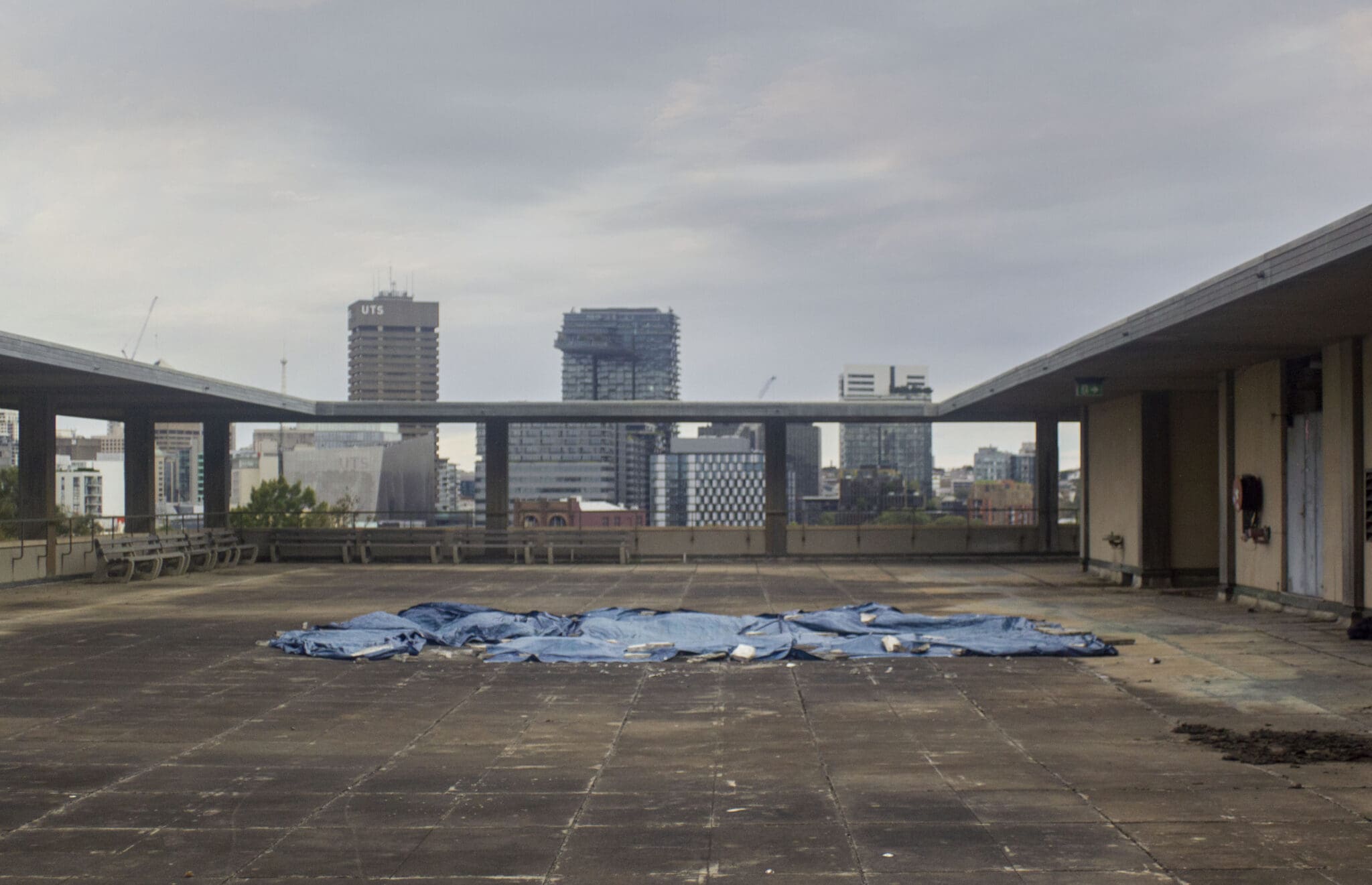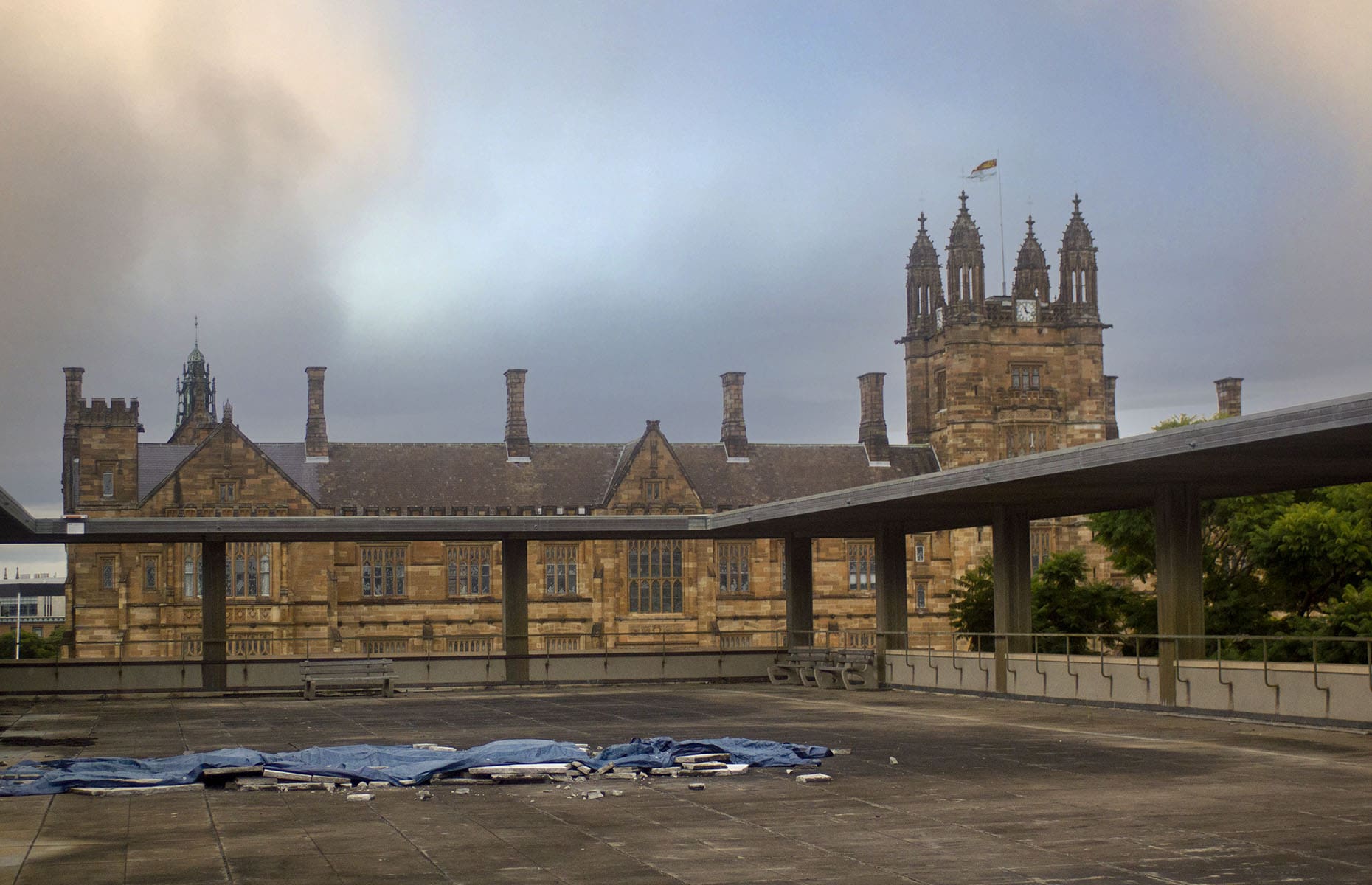The University of Sydney plans on reopening the rooftop courtyard of Fisher Library, for use by students and the community. Firm dates are yet to come, but hopeful estimates indicate that we will be able to enjoy the rooftop from early 2023.
The rooftop courtyard was originally designed as a leisure space for students to enjoy as a part of Fisher Library. For the last 30 years, it has been locked for student use.
In those 30 years, the University has seen rampant corporatisation and the commodification of student life, including very intentional attacks on leisure culture, seen most prominently in the introduction of Voluntary Student Unionism — and more subtly through changes like the closure of Fisher Library’s rooftop terrace.

The optimists among us can see this change as an indication of the power that students hold in turning back the tide. Individual students have previously attempted to make progress on opening the rooftop through communications with the University. It is only through thousands of students engaging online with an Honi article earlier this year, which publicly called for the change, that they finally listened.
In a media release, the University said “a campaign led by student newspaper Honi Soit revived interest in reopening the terrace”. Vice-Chancellor Mark Scott thanked Honi for reintroducing him to this “special place on campus”.
Honi was taken to the rooftop by head librarian, Philip Kent. The space was effectively untouched, even featuring the same benches that students of the 60s would have enjoyed. Kent explained that design and maintenance plans are still in the works, but we can hope to enjoy the space with fresh shade, chairs and tables, all in line with the library’s mid-century heritage, as early as the start of Semester 1 next year.

Importantly, Kent emphasised that the space will provide an opportunity for relaxation, noting that leisure is essential to student wellbeing and is vitally important — even if it costs a bit of money.
This sentiment contradicts what activists have been told by University management in the last few decades, and indicates that consistent discourse around leisure culture being an opponent to corporatision has had an impact. Coinciding with mass staff strikes, the University continues to pursue corporatisation in its sweeping casualisation of staff and continual subject cuts; it’s students who have fought for access to leisure, not University management.
Perhaps it’s true that little wins do not a revolution make. But maybe we can start yarning about it up on the rooftop.





